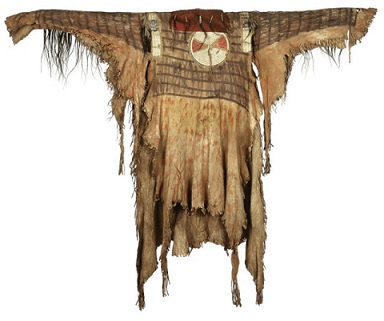
Once upon a time, there was a simple and honest man. He was favored by the king who made him the royal advisor. As time passed by, the influence and power wielded by this minister increased, and numerous people envied him. Someone asked him as to how he managed to keep himself humble and simple. In response, he lifted his silk shirt and revealed a shirt made from horsehair. He added that this shirt always reminded him to never forget his humble origin.
Today the system of governing society according to the qualities of a person is wholly misunderstood. In India people dread the thought of reviving what they call the “caste system.” One Western scholar even called it India's “cast-system” – as this social system was likened to a plaster cast which prevented India from prospering.
But this is far from the truth. Let us consider the following definitions available from the Shrimad Bhagavatam. In the 11th canto an intelligent man is described as follows – Peacefulness, self-control, austerity, cleanliness, satisfaction, tolerance, simple straightforwardness, devotion to God, mercy and truthfulness, these being the natural qualities of the intelligent class of society. Similarly kings are described as having – dynamic power, bodily strength, determination, heroism, tolerance, generosity, great endeavor, steadiness, devotion to the intelligent class, and leadership, these being the natural qualities of the kings. Further, the businessmen are described as – having faith in Vedic civilization, dedication to charity, freedom from hypocrisy, service to the intelligent class and perpetually desiring to accumulate more money, these being the natural qualities of the traders and businessmen.
Obviously if there are people who pray, people who rule and exact taxes, and people who run businesses, there must be a class of people who should be serving them. These are the fourth class members of a spiritually vibrant community. They are assistants to the other three. They are described as follows – service without duplicity to the intelligent class, cows, demigods and other worshipable personalities, and deriving complete satisfaction with whatever income is obtained in such service, these being the natural qualities of the assistants.
Today, just noting the way these classifications were made, may make a person indignant as to why a laborer be should be satisfied with whatever income is obtained? Is this not part of a larger conspiracy to keep him in chains while the upper crust of society exploits him?
To begin with, it is not that easy to claim to belong to the intelligent class without possessing the proper credentials. This intelligent upper class has to constantly wear the heaviest of 'horsehair ' shirts in order to maintain its position. These persons have to constantly remind the two classes below them to give plentiful charity so that no one in the society is neglected. But just in case those with access to money are hesitant to part with it, the prominent quality of the first (intelligent) class intervenes and does the needful – and that quality is to display its extraordinary merciful nature. It is one thing to provide necessities when they are demanded, but in a naturally ordered society, the intelligent class is so merciful that even before someone needs to protest in order to get his rightful share, the intelligent class makes sure that his share is provided for.
Thus it is necessary to understand and imbibe the definition of each class of person, in order to claim to belong to a particular class. Once these definitions are adhered to, society becomes fair and just and spiritually enlivened, the way it is intended to be.
